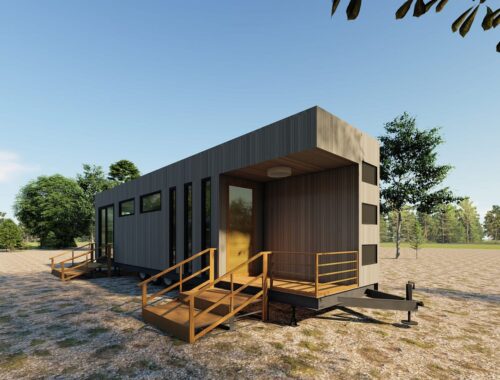New NAFTA Deal Appears Close After Months-Long Stalemate In U.S. Congress
OTTAWA — A deal to revise the new North American free-trade agreement appears close following a busy weekend, with hopes Canada, Mexico and the United States will approve a rewritten treaty in the next 24 hours.
The United States-Mexico-Canada Agreement was signed by the three countries last year, but U.S. ratification has been stalled for months as congressional Democrats and organized labour have pushed to strengthen its labour-enforcement provisions against Mexican objections.
There were concerns the agreement, which aims to update the 25-year-old North American Free Trade Agreement, would not be approved before Congress disperses until 2020 and its focus shifts to next fall’s presidential election.
Multiple reports, however, suggest the stalemate could be over following a weekend of intense negotiations in Washington.
Deputy Prime Minister Chrystia Freeland was cautious Monday amid chatter of an imminent deal.
Watch: New NAFTA close to being finalized
“In the lives of ordinary Canadians, there is perhaps no issue in our relationship with the United States that matters more than trade,” she said in question period.
“The prime minister raised the ratification of the new NAFTA and other trade issues in his meeting last week with the president and we have been working intensively, including many conversations over the weekend and this morning with our American partners, on getting the deal finalized.”
Mexican Foreign Minister Marcelo Ebrard said Sunday Mexico will accept a U.S. demand to tighten the definition of North American steel in a section of the deal on determining where cars and their parts can be said to originate. The U.S. wants to ensure it is clear that to be considered “made in North America,” the steel must be melted and poured in Canada, the U.S. or Mexico, not just finished there.
Those changes were one of the major demands of U.S. labour groups.
Mexico won’t accept the same definition for aluminum because, Ebrard said, the raw materials for aluminum are not produced in Mexico.
Mexico also rejected U.S. demands for American inspectors to be sent in to ensure Mexican auto workers are being paid $16 per hour on average. However Mexican President Andres Manuel Lopez Obrador said Monday U.S. officials had accepted Mexico’s offer to allow dispute-resolution panels to review labor law compliance.
RELATED
- Nancy Pelosi Says A New NAFTA Deal Is 'Imminent'
- Trudeau Meets With Trump During NATO Summit In London
- 5 Significant Moves Trudeau Made With His New Cabinet
Labour unions in the U.S. were to be briefed on the proposed amendments on Monday with the hope they would agree to the changes, which would pave the way for the Democratic leaders to offer their own approval.
The Trump administration as well as the Canadian and Mexican governments would then be asked to agree formally to the amended deal.
“So at this stage of the game, all eyes are on where organized labour is on Mexico’s newest proposals,” said Dan Ujczo, an Ohio-based trade lawyer with law firm Dickinson Wright and an expert in Canada-U.S. trade. “If they agree, it’s likely House Democrats will sign off on this.”
While there is a chance that legislation could be introduced this week and passed by Congress before Dec. 20 to bring the deal into force, Ujczo warned there still could be unexpected hurdles.
“Nobody has seen the implementing bill soup-to-nuts,” he said. “So we’re closing Phase 1 of the deal process, then we’re on to Phase 2, which will be we’ll all have to take a look at the implementing bill.”
The new trade pact would replace NAFTA, which came into force in 1994 and eliminated most tariffs and other trade barriers involving the United States, Mexico and Canada.
Critics, including Trump, labour unions and many Democratic lawmakers, branded NAFTA a job-killer for America because it encouraged factories to move south of the border, capitalize on low-wage Mexican workers and ship products back to the U.S. duty-free.
Mexico ratified the new North American deal in June while the Canadian government has said it is waiting to ratify the agreement at the same time as the United States.
This report by The Canadian Press was first published on Dec. 9, 2019.
—With files from The Associated Press
You May Also Like

ユニットハウスのメリットとデメリットを徹底解説
March 20, 2025
AI in Fashion: Transforming Design, Shopping, and Sustainability for the Future
March 1, 2025